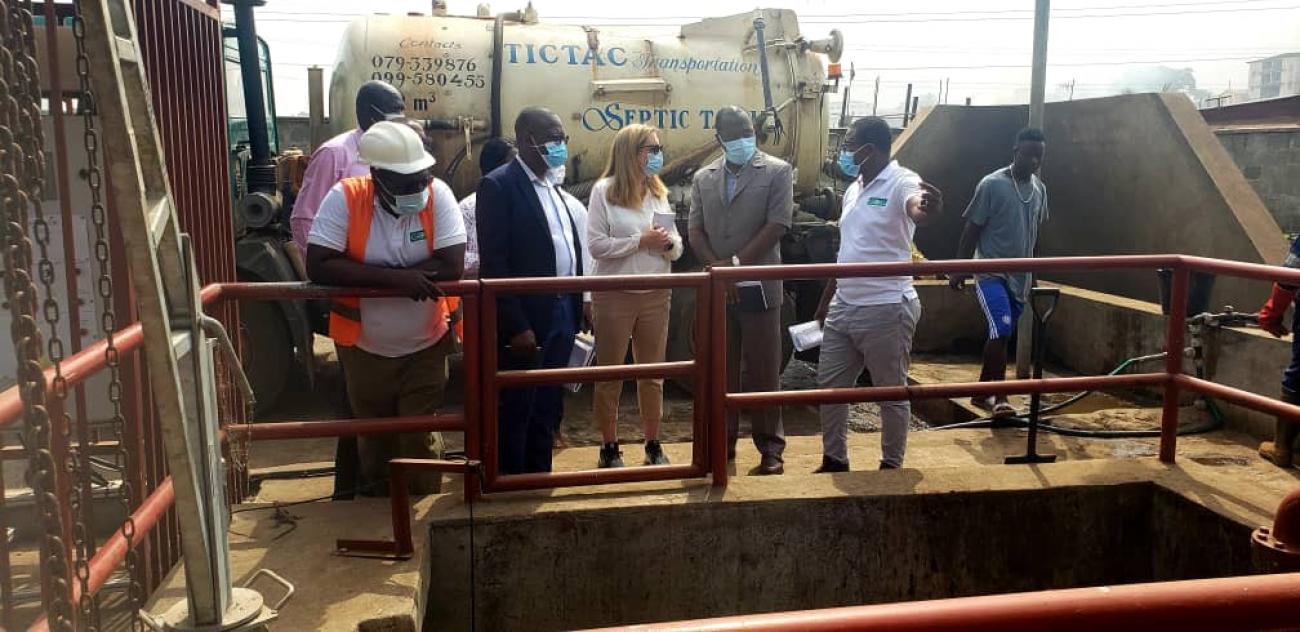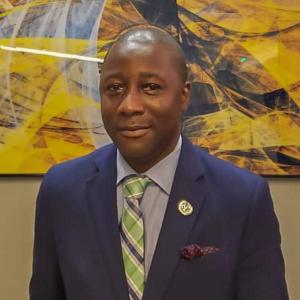The waste treatment site, using innovative Geobag technology, is processing approximately 11 trucks per day, an equivalent of 11% of Freetown’s waste.
United Nations Resident Coordinator (RC), Mr Babatunde Ahonsi today expressed his hope for the country’s first waste treatment plant to be replicated across the country and mainstreamed into the broader sanitation sector.
He joined Ambassador Claire Buckley of Ireland, UN Capital Development Fund (UNCDF) Country Lead, Wycliffe Ngwabe, and Gashaw Mekonnen, the Country Director of GOAL who welcomed the team for a walk-through of the plant at Kingtom in Freetown today. The plant was constructed by the Freetown City Council (FCC) with support from GOAL, an international humanitarian and development agency, and the UK’s Foreign, Commonwealth & Development Office (FCDO).
The Country Director expressed GOAL’s continued commitment to sustainable waste management practices despite the grant ending in March 2021. Mr Mekonnen also appealed to the UN and the Irish Embassy to advocate for more actors to get involved in the sanitation and waste management sector.
The RC thanked GOAL for the work at the site, describing the project as, “a model” and indicating that the “test of its viability is its sustainability”. On the other hand, Ambassador Buckley said she has heard so much about the site and was excited to come and see the waste management process. She commended GOAL for what she described as their well-deserved reputation in the country. The Irish Ambassador also singled out the impact the Irish Embassy-funded borehole is making to the project, pumping close to 14,000 litres of water since the morning of the visit.
GOAL Wash Coordinator Pius Nishimwe elaborated on the “vehicle truck operator model” with input from UNCDF and the overall revenue-generating model of the site. He also described how the site operates, from the trucks arriving to how the faecal sludge is treated.
UNCDF Country Lead Wycliffe Ngwabe mentioned that discussions with GOAL have been around identifying various approaches that can be used to build viable products from the liquid waste that can be scaled for the market. UNCDF has committed to supporting the market research that would help to validate the current design, test prototypes, and estimate the demand for the products. The objective is to identify bankable private sector projects that can be supported to scale.
According to GOAL, the waste treatment site, using innovative Geobag technology, is processing approximately 11 trucks per day, an equivalent of 11 percent of Freetown’s waste from septic tanks and latrines.






